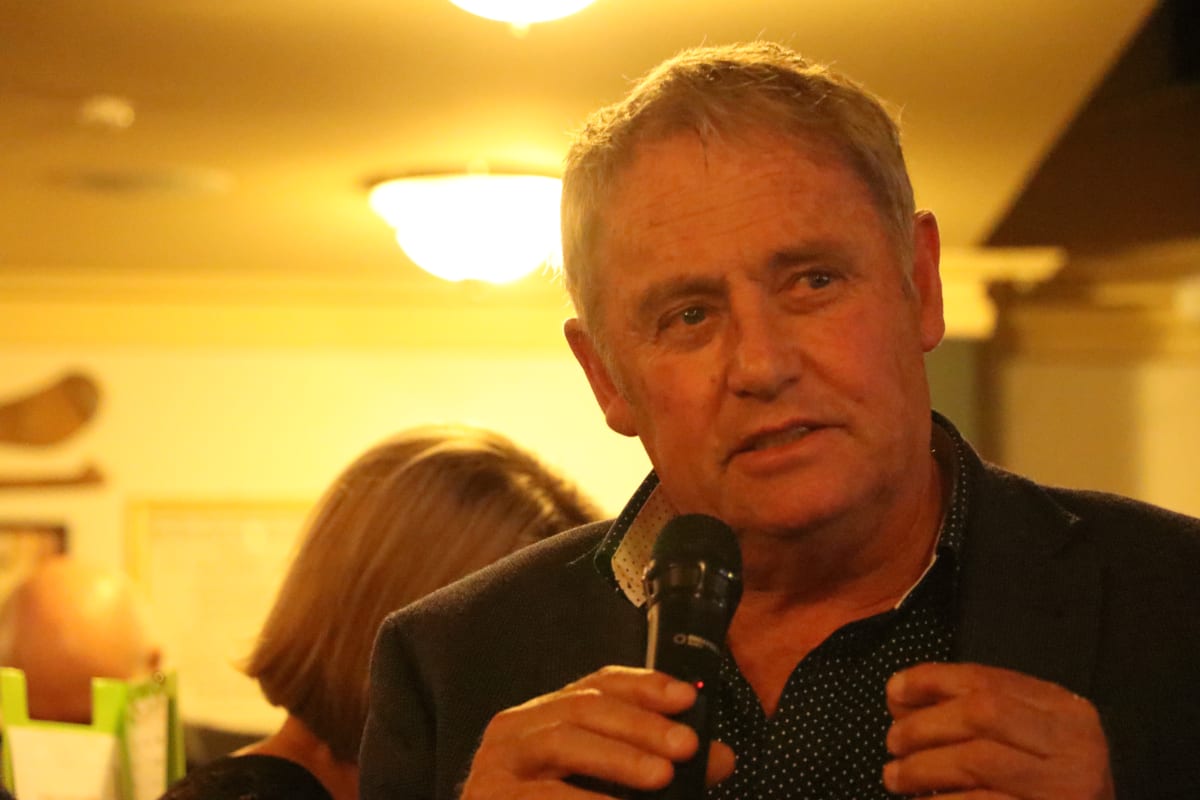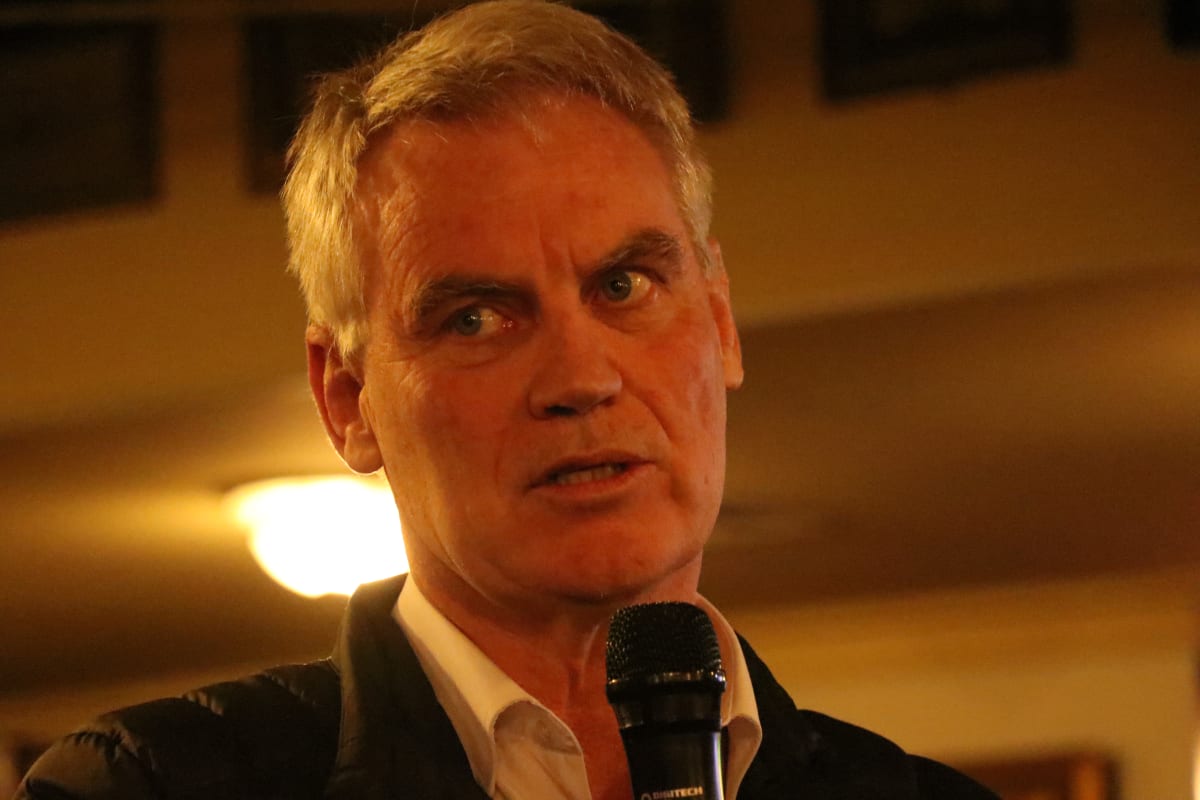
The findings of a staff survey represent a devastating takedown of council bosses
The unvarnished thoughts of Christchurch council’s under-pressure staff reveal how little respect they have for their aloof leadership.
Newsroom has already reported on the high-level findings of the council’s $83,495 staff survey, which revealed gripes about pay, and frustration about communication from the executive leadership team headed by chief executive Dawn Baxendale.
Now, the council has released an 81-page report from survey company AskYourTeam – presented to the leadership in May – which details a “lack of confidence and satisfaction in leadership across the organisation”, with some teams “seriously lacking”.
Staff point their fingers firmly at the leadership, in which the report says there’s low trust and confidence – “based on some perceived negative behaviours, ineffective communication and a strong sense that executive leadership team is not connected nor visible to the majority of the organisation”.
“There are some perceptions that executive leadership team are so disconnected they are oblivious of low morale.”
Further, there are allegations of bullying and intimidating behaviour, and mention of a deteriorating culture. Across much of the organisation there was a “low and disempowered morale”.
The survey report is the bitter icing on an unpalatable cake for an organisation struggling with high staff turnover – “closely related” to pay dissatisfaction – and public dismay.
At a governance level, the council is in a state of flux. Mayor Lianne Dalziel is stepping down and her job is being pursued by 10 men and a woman, with the front-runners, according to a Q+A Kantar poll, vigilante councillor Phil Mauger and former Canterbury District Health Board boss David Meates.
Five councillors are also stepping down.
To complicate matters further, the council is taking on the Government over housing density rules.

Mauger, who admits he hasn’t read the survey report, defends the council’s leadership. “No one, at any level, goes to council work to do a bad job. They’re doing the right thing.
“One thing I have seen in the last three years, there’s been a change around at the top three levels, and there’s a lot more spark in people’s eyes, and there’s a lot more spring in their step.
“I see it but we need to get down into it a bit more.”
He believes it’s up to councillors, the mayor and staff to work together to turn things around.
Meates, the former health boss, says the survey’s results suggest trust and confidence needs to be rebuilt within council.
“Underpinning the development of any culture is trust. Trust builds confidence.
“And if you’re missing those two, it really doesn’t matter what you promise as an organisation, or as a mayor and councillors, it’s not going to happen.”
In terms of whose job it is to rebuild trust, Meates puts it back on the executive leadership team.
“What’s really important is the council being clear about its expectations, and, again, looking at how the councillors provide a supportive and enabling environment to get a much more engaged organisation.”
The framing of the problem by the pair is interesting.
Meates says people have been telling him they want a different approach – “one that’s much more collaborative, and one that’s much more forward thinking”.
Consistency is key, he says, and that includes consistent behaviour from councillors to help set the tone for “internal coherency”.
The picture he appears to paint is one of an intemperate council table, with elected members at each other’s throats.
Mauger, whose family companies are involved in contracting and property development, says: “I’m more of a hands-on guy,” he says. “I’m not that strong on governance but I’ve got people around me that can do governance.”
If he were elected mayor, part of his style would be to walk the floors of the council’s central city headquarters and “show some interest in what’s going on”. As Tim Shadbolt’s mayoralty put Invercargill on the map, Mauger says he’d like to emulate “a tiny bit of that at Christchurch”.

Several major themes emerged in the AskYourTeam survey of council staff, which attracted 389 “free text responses” from the 1500 people who participated. (The council has roughly 2600 staff.)
Pay was a major topic, including discontent at pay rises not keeping pace with inflation, with the flames being fanned by Baxendale’s $18,400 remuneration hike during a pay freeze. Staff felt overworked, over-stressed and underpaid.
“Leaders are obsessed with cost-cutting without acknowledging the effects on staff.”
The leadership team had a perceived lack of respect for staff, and held unrealistic expectations, the survey said. Its communication was “ineffective”, and concerns were raised about the leadership’s capabilities.
Survey questions revealed a “significant disconnect” between the leadership and the rest of the organisation. Greater transparency and more consistent messaging was needed, staff felt.
Managers, including members of the executive team, had perceived “bullying behaviours” and “micromanagement”. At a fundamental level, some staff felt unsafe to tell the truth, and said honesty wasn’t valued.
A section on culture and values highlighted a toxic culture punctuated by low morale, a lack of trust, and high levels of frustration.
In consecutive lines, the report noted:
- “Bullying and intimidating behaviours common and concerning.”
- “Bullying behaviours coming from managers.”
- “Bullying harassment tolerated and ‘swept under carpet’.”
There was a “culture of fear” in some quarters, while some staff enjoyed “favouritism” as poor performance was tolerated.
Messaging around Covid-19 restrictions prompted “dissatisfaction and concern”, and was deemed “insulting” by some. Staff were “required to be in the office”.
A hodgepodge of other themes were raised, some of them conflicting – like the council having too much red tape and outdated systems, but, on the other hand, having a poor adherence to processes.
At the centre of it all were overworked people, with too few resources, raising health, safety and wellbeing concerns.
Page four of the report presented “common reactions” in coloured speech bubbles: “Overwhelmed, sad, angry, confronted, dismissive, deflated, disappointed, defensive.”
The survey company recommended the council pursue a leadership development programme and involve staff in the “key solutions”, using consistent and transparent communications.
“There is a compelling need and desire for positive change. Lifting confidence, trust in and satisfaction with leadership and culture are recommended as the key focus areas.”
In June, when staff were sent the high-level survey results, Baxendale assured them: “ELT is taking the results of the survey seriously and together we have done some soul-searching around our own behaviours and the way in which these are perceived. We have re-committed to being the best team we can be and to continuing to build our relationships.”
In an email to elected members, Baxendale highlighted areas to be celebrated, including “our confidence in our cultural competence and our commitment to working for our citizens”, while areas for improvement include “culture and leadership”.
“Our Heads of Service are now engaging their teams with their unit-specific results and will be working with their staff to address any concerns or issues raised in these results.”
Call to open purse strings
Ian Gordon, the PSA union’s national sector leader, says in an emailed statement the gulf between leadership and the workforce is concerning. It’s encouraging the council to prioritise job security and sustainability, and budget for a “much-needed pay rise for workers next year”.
“Asking workers to take an effective pay cut at a time when there is so much competition for talented workers will only see more staff leave the organisation.
“The council needs to improve its engagement with its workers, engage in good faith with the union, and pay its workers what they are worth.”
The council’s emailed response comes from acting chief executive Jane Davis. She says the ELT takes staff feedback “very seriously”. It has adopted a new charter, which has been shared with staff, and “reiterated our commitment to making meaningful changes”.
It also developed an action plan “to address many of the issues raised by staff”.
That plan contains commitments to:
- Review the flexible working policy.
- Review pay and benefits.
- Improve “performance conversations” and ensure professional development plans “are in place”.
- Reduce inefficiencies that cause staff frustrations.
- Work with the new council to “streamline decision-making”.
Davis says: “Many of these actions are already under way. Staff will get regular updates on how we are progressing.”
The remuneration review should be completed by March next year. Another AskYourTeam survey will be conducted next year, Davis says, “so we can track the progress we are making in addressing the issues that our staff have raised”.
Months-long to-and-fro
The release of the 81-page survey report, headed “Review and recommendations”, ends a months-long to-and-fro with the council.
On May 30, Newsroom asked for the full staff survey report. On June 29, the council emailed to say the relevant general manager’s response “will not be ready until the end of the week”.
Under the Local Government Official Information and Meetings Act, councils can extend time limits if a large quantity of information has been requested and sifting through it would unreasonably interfere with its operations, or if consultations are necessary.
On July 1, apologising for not meeting the statutory timeframe, the council released a summary sent to staff on June 20, adding: “To clarify there is no staff survey report.”
Council decided it would release “organisational level results” to Newsroom in mid-August – which it did – giving staff “time to engage” with managers.
On July 5, we emailed the council noting Baxendale’s email to staff which said her executive leadership team reviewed the survey results on May 30, and provided a summary.
The council’s response, on July 20, was partially italicised: “To clarify our previous response, there is no full staff survey report from the consultant company as per your request.”
Newsroom asked if the council held fuller information than it provided on July 1. We were told: “There are various aggregations of data which have been shared with senior managers in presentation format and, as confirmed, these are not a ‘full staff survey report from the consultant’.”
Last month we asked for those “various aggregations”. Soon after, emails accompanying the “organisational level results” showed the ELT attended a three-hour results session on May 30, so Newsroom asked for all original material or presentations from that meeting.
On September 7 – the same day the council released information about Baxendale’s controversial wish to have private meetings with mayoral candidates – the council provided the 81-page report.
Perplexed, we asked how this information wasn’t released earlier, under our request for a full staff survey report. Came the response: “This was particular data drawn from the results. As discussed, all the data was in a dashboard form and so there was no overarching report to provide.”
The difference, then, was we asked for a “summary report” and not a “presentation”?
The council official information manager’s response was short and swift: “That is correct.”
Council staff were only sent a copy of the report earlier this month – regarding a survey undertaken in February and March.
Of particular interest in next year’s survey results might be progress on openness and transparency.







